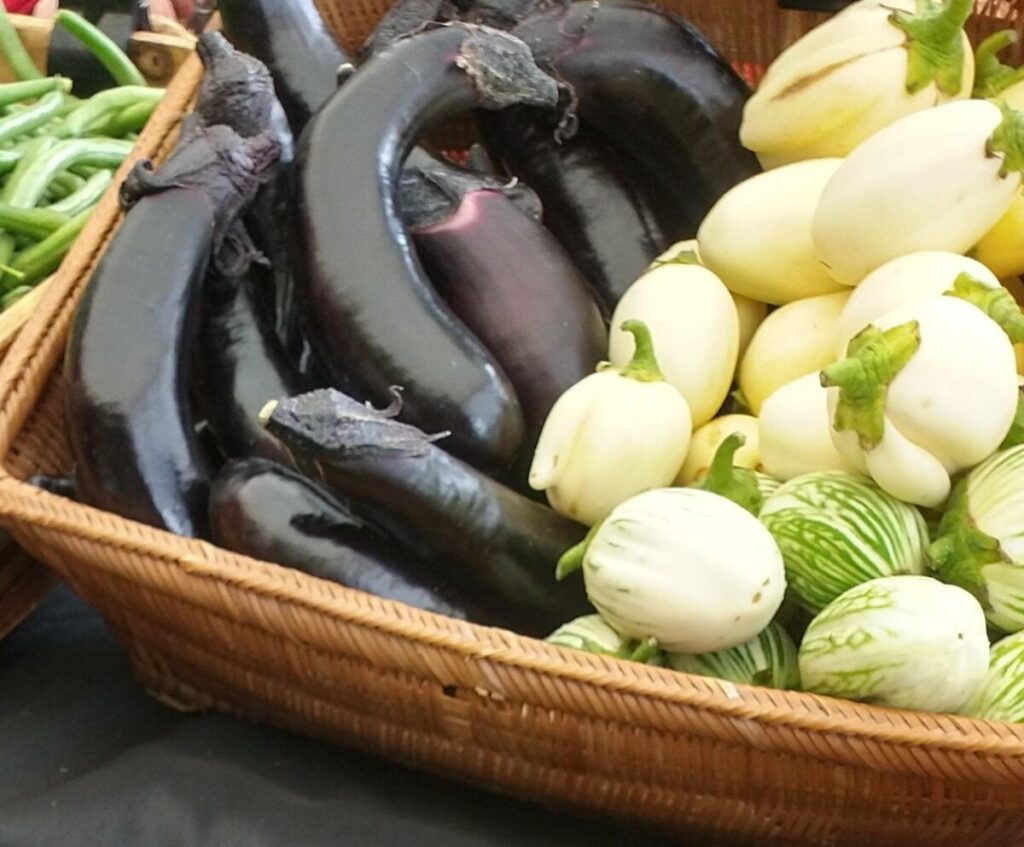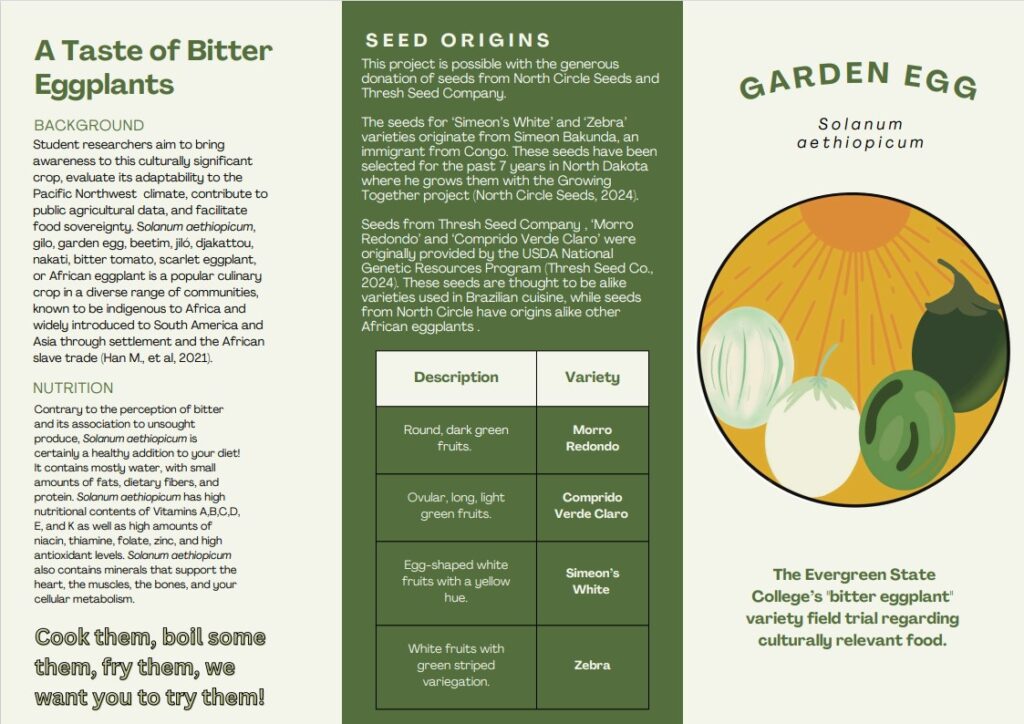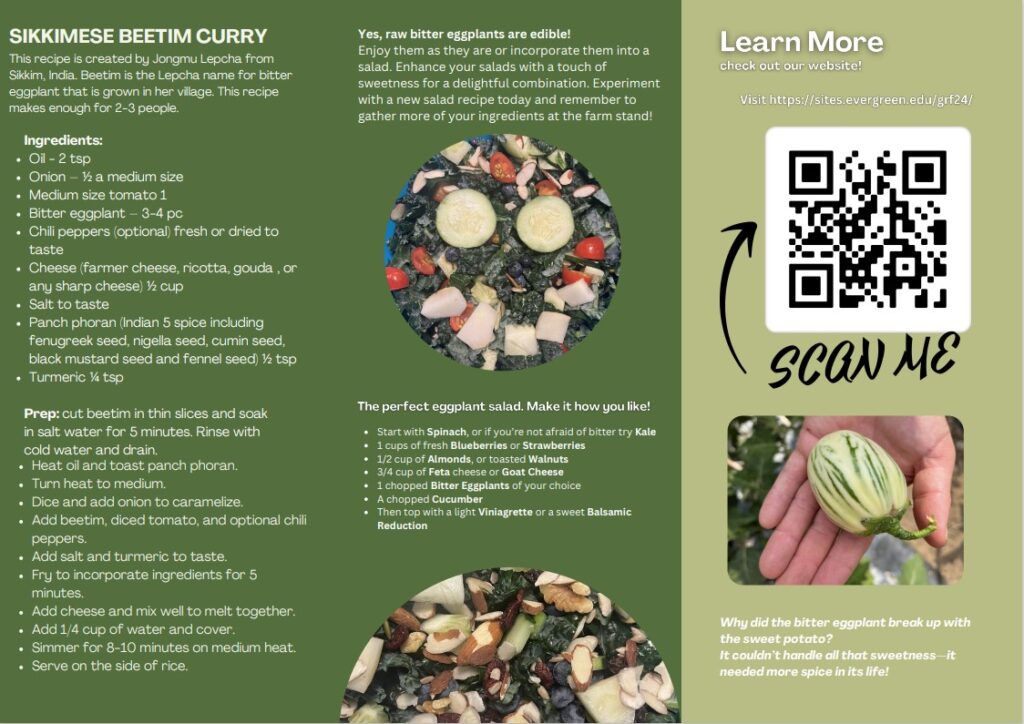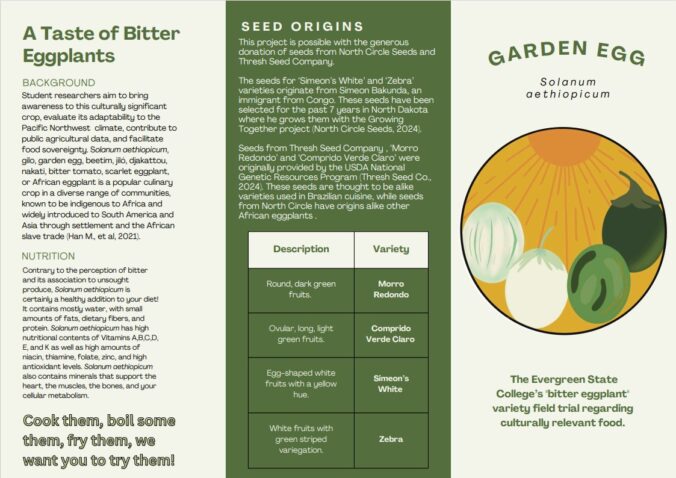Marketing African eggplant—a culturally significant vegetable—within the Pacific Northwest offers both opportunities and challenges for the 2024 Solanum aethiopicum Gilo Replicated Variety Trial researchers at Evergreen Organic Farm. This unique specialty vegetable, rooted in African, Asian, South American, and Caribbean cuisines, embodies flavors and traditions that resonate with diverse communities. However, its seasonality, limited shelf life, and cultivation on smaller plots make long-distance shipping impractical, necessitating a localized marketing strategy.

Image by Sarah Dyer.
To introduce African eggplant to Pacific Northwest consumers, our research team first identified potential market channels. We focused on presenting bitter eggplant as a novel offering at the Evergreen State College Organic Farm Market and the Southwest Washington Food Hub, while also exploring opportunities within South Seattle’s African markets.
Conducting market testing was essential for understanding customer preferences and integrating the vegetable into local culinary habits. To promote acceptance, we distributed samples to students and community members, alongside special promotions and community initiatives aimed at engaging those unfamiliar with this culturally significant vegetable.
Effective marketing strategies included creating visually appealing displays and educational materials. Our setup showcased the bitter eggplant paired with a trifold pamphlet featuring recipes and preparation tips, guiding consumers on how to incorporate it into their meals.


In positioning this culturally rooted vegetable within a diverse market, we aimed to connect African eggplant with local culinary practices. By developing narratives and meanings that resonate with shared experiences, we help forge connections between the product and consumers.
This approach not only highlights the cultural significance of African eggplant but also facilitates its integration into the evolving culinary landscape of the Pacific Northwest. In doing so, we foster a sense of community and cultural appreciation, making the vegetable more inviting to new audiences.


Leave a Reply